Montgomery Classification of Aortic Parietal Plaques
May 20, 2022
Pages: 1 – 3
From: Montgomery D.H. Natural history of severe atheromatous disease of the thoracic aorta: a transesophageal echocardiographic study. J Am Coll Cardiol 1996;27:95-101.
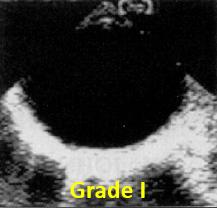
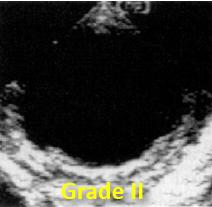
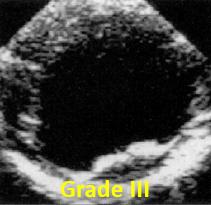
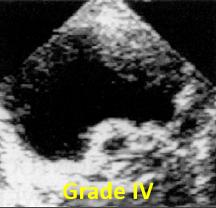
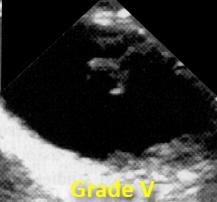
- Grade I: Normal or mild intimal thickening
- Grade II: Extensive intimal thickening
- Grade III: Atheroma < 5 mm
- Grade IV: Atheroma ≥ 5 mm
- Grade V: Mobile lesion
Predictive power of aortic atheromas:
- For coronary artery disease: presence of aortic plaque (> Grade II) at TEE has 95% sensitivity and 88% specificity.
Tribouilloy C. et al. Noninvasive prediction of coronary artery disease by transesophageal echocardiographic detection of thoracic aortic plaque in valvular heart disease. Am J Cardiol 1994;74:258 - For embolic events: At multivariate analysis only protruding atheromas predicted independently events.
Tunick PA. et al. High risk for vascular events in patients with protruding aortic atheromas: a prospective study. J Am Coll Cardiol 1994;5:1085. - For post-operative embolic events: At logistic regression analysis, only aortic arch atheromas predict post-operative stroke in older patients.
Katz ES. et al. Protruding aortic atheromas predict stroke in elderly patients undegoing cardiopulmonary bypass: experience with intraoperative transesophageal echocardiography. J Am Coll Cardiol 1992;20:70.